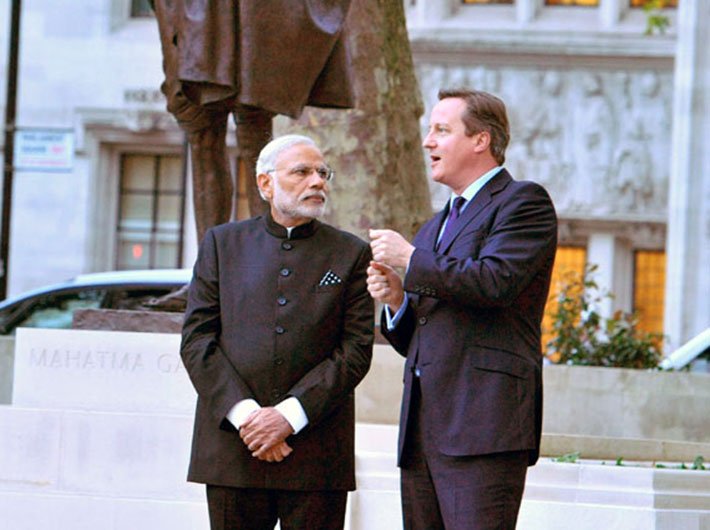As all eyes focus on the June 23 EU referendum, a look at what is in store for India
As Britain and the world waits with bated breath for the result of the June 23 referendum on the Brexit issue, we take a look what this means for India. Will it be a win-win situation for the country or the stakes are too high? Not giving any clear answer, external affairs minister Sushma Swaraj has said that “the decision has to be taken by the people of Britain and they would decide keeping in mind their national interest. India has no role to play in it.” But she has also admitted that Britain has been India’s gateway to the EU.
RBI chief Raghuram Rajan on the other hand has sounded a word of caution. He has said that Brexit could be "quite damaging", but India is adequately prepared to face any consequences.
So what are the consequences that India may face if Britain decides to leave the European Union (EU)?
Trade and business
If Britons decide for a Brexit, then rules and regulations of doing business in the UK might change. Most Indian companies invest in the UK as it serves as a gateway for them to enter other European markets. With a Brexit, such Indian companies might have to lookout for some other countries which can give them an easy access to EU.
For example, at present Tata can sell its cars, which are assembled in the UK, across EU countries without tariffs. This may however change following Brexit. The company may have to shift its assembly plant to other European city to cut costs.
According to Indian research body
IDSA, “Brexit could cause instability in the markets in the short term and that would adversely affect India. 800 Indian businesses with more than 110,000 employees are likely to take a hit in the short term. The Federation of Indian Chambers of Commerce and Industry (FICCI) has warned about considerable uncertainty for Indian businesses operating in the UK and Europe if Brexit were to ensue.”
Experts also believe that tariffs for such 800 Indian-origin companies might increase after the Brexit.
Indian companies at risk
As per a securities house
CLSA report, Indian companies with specific exposures to the EU/UK that risk being hit by Brexit includes Tata Motors Ltd, Tata Steel Ltd, Motherson Sumi Systems Ltd and Bharat Forge Ltd.
The exit may impact the operations of Jaguar Land Rover Automotive Plc., the UK subsidiary of Tata Motors.
Though some analysts believe, Brexit may have a positive impact on India in the long run as the country would be able to increase its trade with the UK. India would no longer have to abide by the EU trade rules.
Immigration
Work-related visa restrictions have already resulted in a fall in the number of Indian students in the UK. Following Brexit, the number of Indian students applying to UK universities and colleges might reduce further. Sceptics also fear that visitation rights of relatives who have families in UK might also be affected. Also, those applying for visas in Britain may face a hard time. With Brexit, the government’s stance on immigration will likely curb overall immigration into the country.
But UK’s employment minister who is of Indian origin, Priti Patel, is in favour of an exit. “Many members of the Indian diaspora find it deeply unfair that other EU nationals effectively get special treatment. This can and will change if Britain leaves the EU. A vote to leave the EU is a vote to bring back control over immigration policy to the UK,” she said.
Some Indian-origin residents of UK who are in favour of the exit argue that their jobs would be taken away by immigrants who may get a special treatment. Ironically, they seem to forget their own origin as a migrant.
Countering the fears of immigration, Indian industrialist and philanthropist Lord Swaraj Paul, head of the Caparo Group, has warned: “The UK labour market will also suffer because Britain is forced to bring in a number of skilled and unskilled workers for the jobs that cannot be filled by the indigenous population.”
